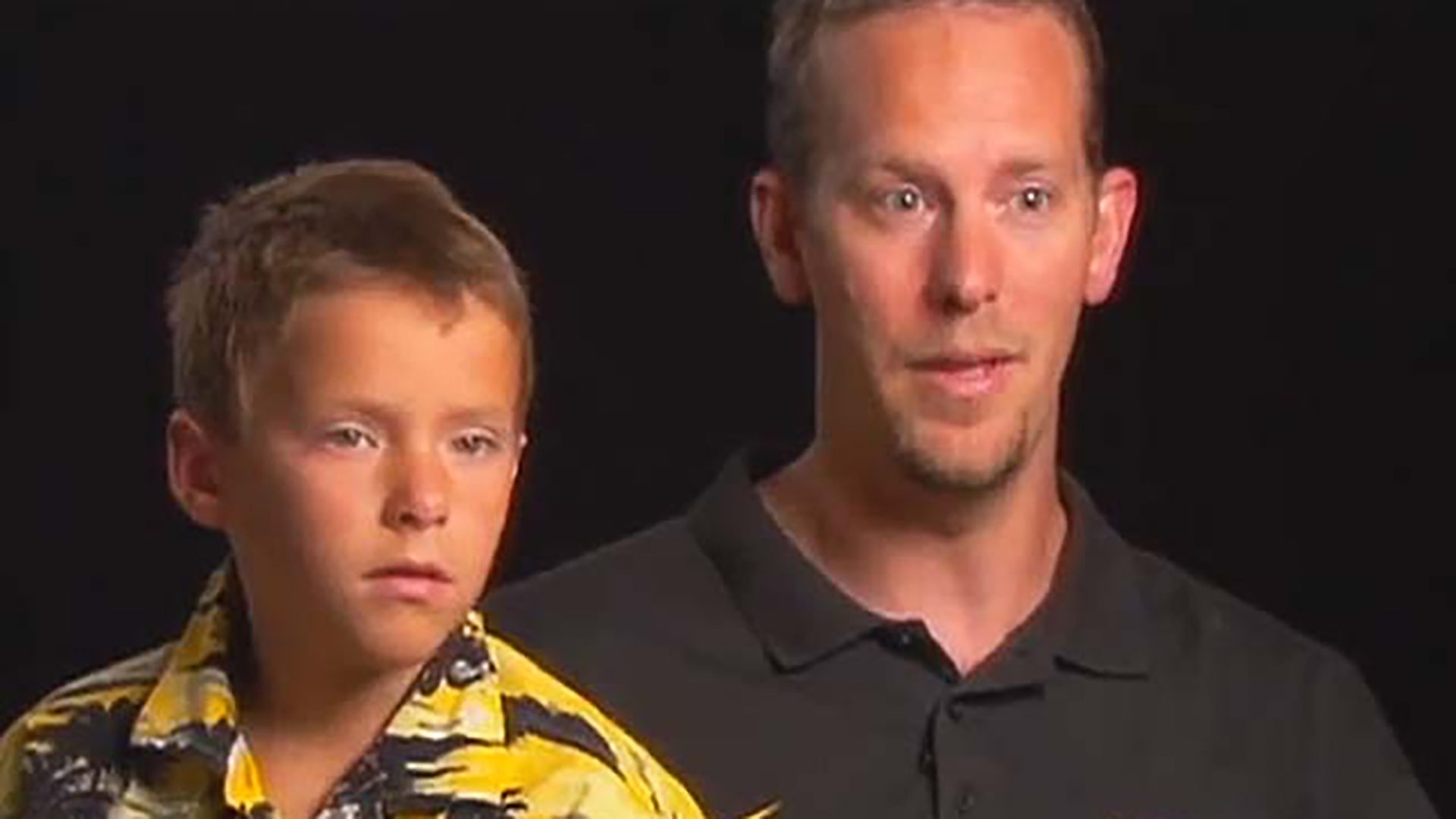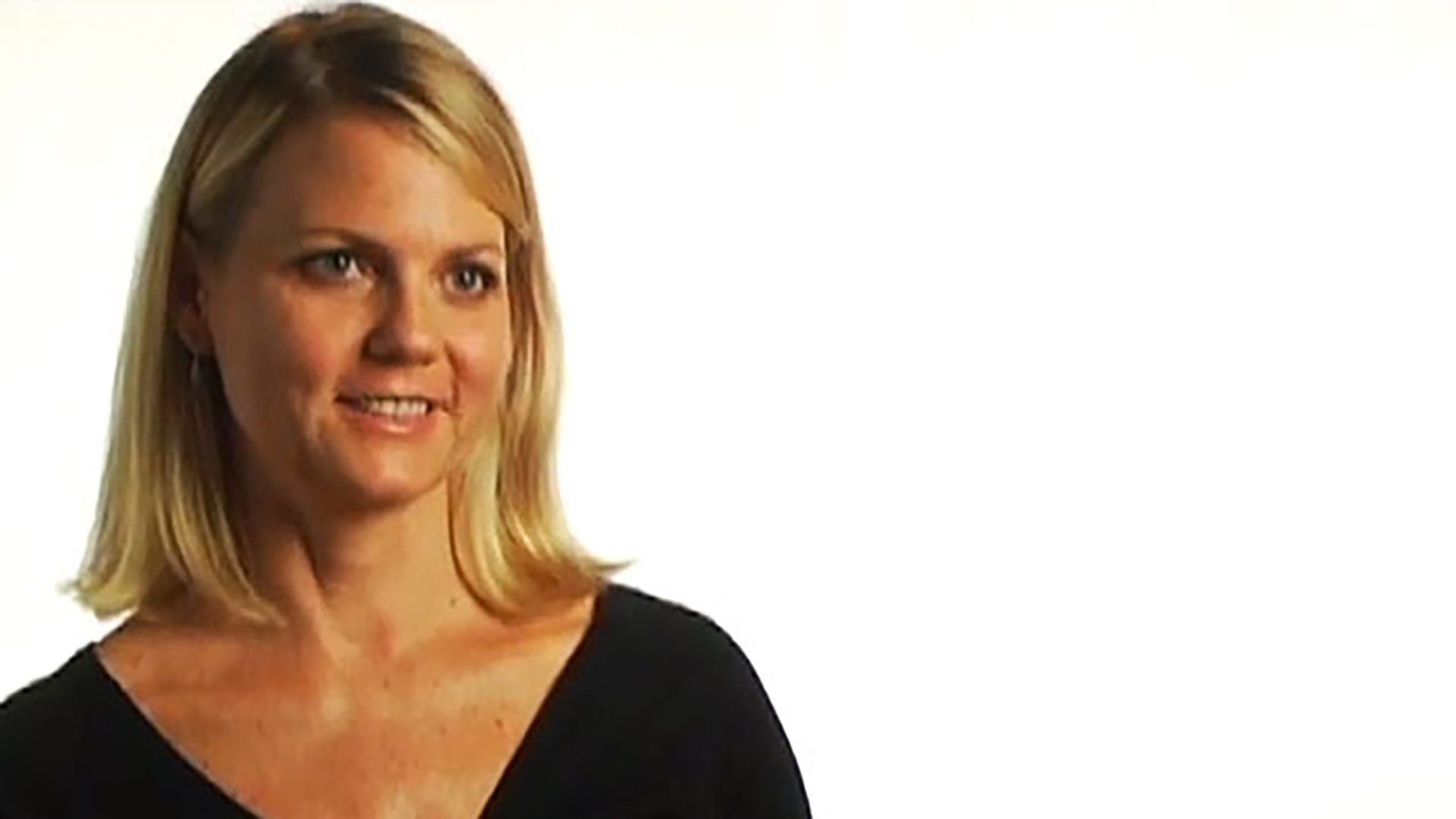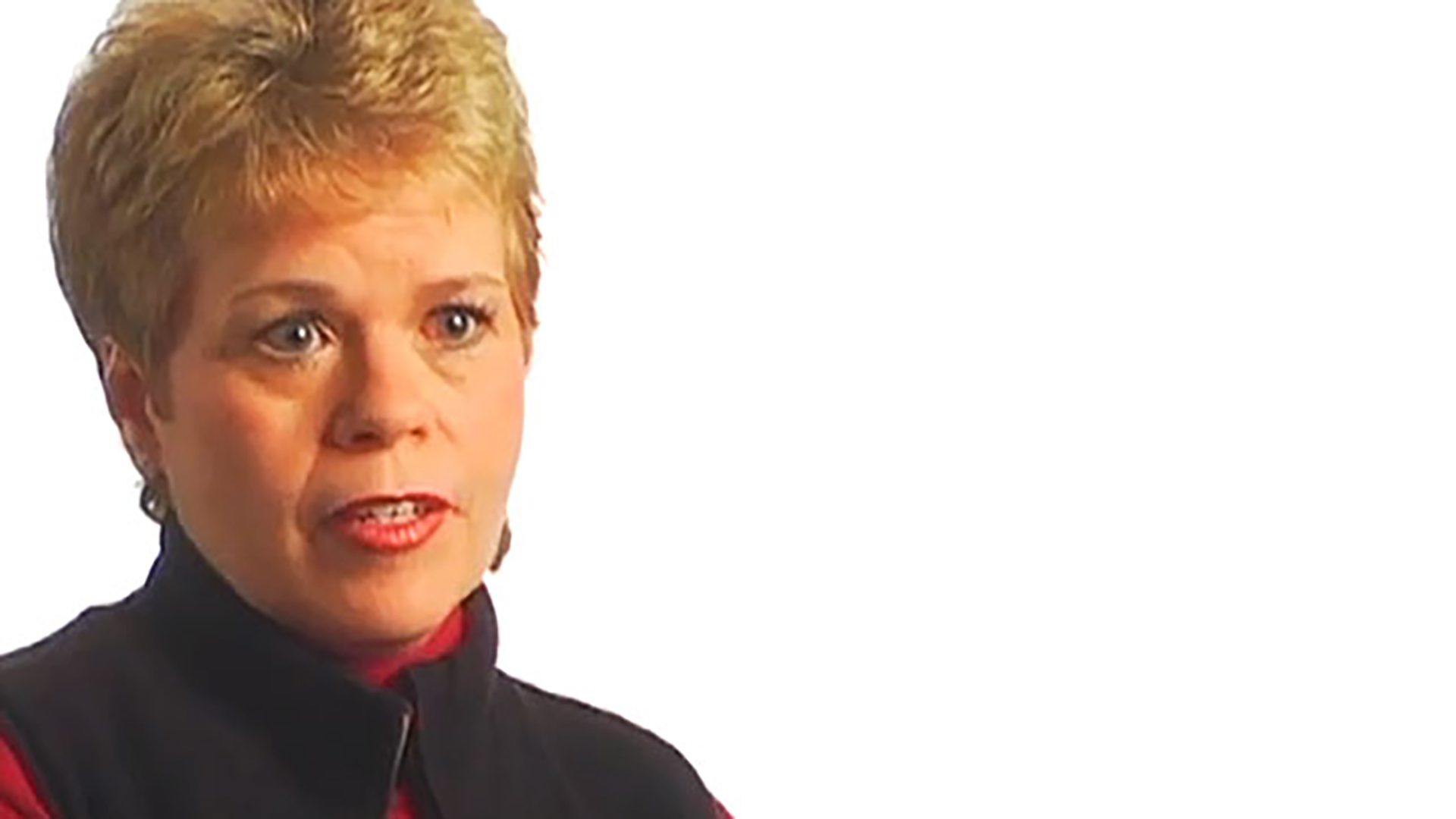Survivor Interview – Paul and Cameron S.
Cameron is a childhood acute lymphocytic leukemia survivor. His dad Paul discusses the emotional effects of seeing him through treatment and getting involved in the community.

Cameron: I became a leukemia survivor when I was diagnosed in 2000.
When I was really little, my dad told me that I had leukemia, and I didn’t know what it was. I had chemo for about one or two years. When you get first get chemo, your hair starts falling out, but it will eventually grow back. It was really hard for me to handle it and hard for me to understand what was happening. It’s my fifth year of remission on June 15th. We’re going to be in New York on the Today Show with a big sign that says, “I’m in my fifth year of remission. I’m a kid.”
I feel like it’s special that I got leukemia because it’s very rare for people to even get it. I feel I’m a little different because I had cancer. When kids were playing at home and got to ride on their bikes, I was spending time in the hospital. I was just sitting in my bed, taking all my treatments.
Paul: Cameron was diagnosed with acute lymphocytic leukemia at age three. That’s an age where most three-year-olds are running and jumping and playing around. Our first thought was death. We thought that was cancer. As we learned more about it, we understood that it’s not an immediate death sentence. He had a 70 to 75 percent chance of surviving. It’s now up to 85 percent, so it’s really jumped in the time we’ve been through it.
When Cameron was in treatment, it was really hard on my wife and I. The whole time was really intense. They put in a port, and it was really easy for them to get in and access the blood to do blood checks. They could administer the chemo through there, and it didn’t hurt him as much. They could numb it up, so they could access it at any time they wanted to. And that was nice. They also did spinal taps to get the fluid out. It was hard to watch and hard to think about, but as you got used to it, it just became routine. He was always out.
We tried to stay positive. The support really came from our family and friends. I was amazed at how much support we had. Our families became really tight. We couldn’t have done it without them. As the treatments grew on, people still stuck around and brought dinners and brought Cameron gifts. They did for the whole three years that he was going through it. As things started getting a lot better, that’s when we started to try and give back, share his story, and try and help out the people that helped us prior.
He wasn’t walking for a while. He got inspired by Lance one day by watching the Tour with me and decided to try to ride his bike. That’s what got his legs moving again, and the physical therapist was pretty happy because she couldn’t do anything. He motivated us to learn a little bit more about the Foundation and Lance too.
For myself, the biggest hope was that he was going to make it. He was like an example. We put all our hope in him and the doctors. It was neat for him to have Lance as a role model. To have a person that he could not only look up to as an athlete, but also as a cancer survivor. And then for us to be able to look at the same person and go, “He’s a role model for us too.” It inspired him to get better and to be strong. One of the things he used to tell me was, “Daddy, a lot of people get tired of running, but I’m so strong because I went through the leukemia and chemo and my brain tells me I don’t have to stop, just like Lance.”
Since then, he’s started back in the public school system. His immune system is strong enough where he can do it. Cameron’s had some long-term side effects already starting in. I’m his second-grade teacher, so I got to see him not only at home, but in the classroom. We started to notice that he developed a tick, and his neck would twitch. But we caught it pretty early, and we got him on medicine. It didn’t progress into something else or became a habit. Another long-term side effect is he loses focus or attention span from the methotrexate that he took. That’s another thing that I was able to pick up on as a teacher. I could see his focus at the beginning of the year, doing really well, and then towards the end, drifting off a little bit. So, we set up Individualized Education Programs (IEP) with the school and got a plan for the next year.
It’s important for me to be involved in the cancer community and the Lance Armstrong Foundation. I want to be a positive role model for Cameron. I’ve taken it on as a passion. It’s something that I felt personally from Cameron and his leukemia experience, and I want to be able to do more. I want to be able to do what the people before us did. I want to be able to help other kids and adults that have leukemia. My involvement in the cancer community and the Lance Armstrong Foundation is something I don’t think of as work. It’s just something that I feel a drive to do.
The Peloton Project is a grassroots fundraising support system. It’s international now. We raise money to benefit the Peloton Project, which goes to the Lance Armstrong Foundation. As a mentor, I am a liaison between the LAF and the members of my region. I can share personal stories with them. If they have any questions, I can answer their questions for them as best as I can, and basically be a support system for the 400 members in my region.
The Ride for the Roses is great for bicycle fans. But when you add in that the majority of the Ride for the Roses participants are cancer survivors and people involved in the cancer community, you get this other feeling of everybody being out there, not only for a bike race, but for helping everybody in the cancer community. So you ride by these people.
I remember when we were out there with Cameron. He had a survivor sticker on his back. And everybody’s going, “Go Cameron! You’re a survivor.” And you get this feeling that it’s not just a bike race, but it’s a whole community out there that’s fighting for one cause. I’m passionate about cycling, and I’m passionate about cancer. So it’s the best event that I could go to.
I am here in Washington, D.C. for Livestrong Day. An advocate, from my perspective, is someone that can share our story, share where we have been, how cancer’s affected us, and where we want to go with it, our personal story. And then being able to share that with someone who maybe doesn’t have much experience with cancer and try and inspire them to join our cause, the Lance Armstrong Foundation’s cause for support of cancer research.
I’ve taken it in two perspectives. If it was an adult-to-adult conversation, you get a certain level of understanding and different points across. But when they see a little boy, who’s actually lived with cancer, then they see the dad who’s been the caregiver, I think it brings a whole new perspective into it. It might hit home. They all have children. To see a child that’s going through it, I think it will become a little more personal for them and hopefully they’ll treat us with respect and take it a little more to heart.
We met with Senator Boxer, and she was very sweet. I expected to be pushed in and pushed out. “Yes. Thank you very much and see you later,” kind of thing. But it was very personal. She wanted to know about him, what grade he is in, and what his hobbies are. She has a grandchild that is same age as Cameron, so she said she could relate really well. She plopped him down on the couch and gave him a big hug before we started. So it made him feel really comfortable. We told her our personal experience and how important it is to raise money for cancer and cancer research. She said, “Gosh, if my grandson had it, I don’t know how I would deal with it.” So she said that really respects what we do and she’s all for it. She’s going to do everything she can.
Cameron did such a good job speaking that he made a big difference. She said, “It’s so refreshing to see a child in here telling me his truth and straight from his heart about these matters. I get a lot of people in here that just come in, they spout all these facts out, and I don’t even remember it. But a child, I really remember.” So I think Cameron made a big difference.
Cameron: It’s important to share my story because other people with cancer will know there’s hope, and there’s actually hope that you could live. Lance means a lot to me because he was a cancer survivor too. If I could see Lance again, I would tell him that he really inspired me when I was in my treatment and chemo.
My name is Cameron Stewart, and I’m a leukemia survivor.

